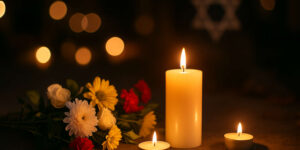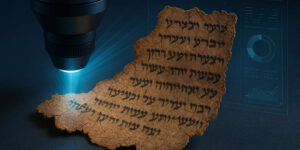Vietnam Paints Hmong Cult Meeting as Christian
The government tried to portray several thousand Hmong followers of a sub-Christian messianic cult as orthodox Christians while the military forcibly disbanded their gathering yesterday and today.
The cult members recruited from orthodox Christian groups—vulnerable to false teaching in a country where Christians cannot print their own Bibles and are subject to other restrictions—had gathered for religious reasons in Muong Nhe district, Dien Bien Province, but it turned into a confrontation before local defense forces disbanded them, bolstered by Vietnam People’s Army reinforcements hastily dropped in by helicopters.
Sources in Muong Nhe told Compass that several thousand Hmong who had initially gathered to wait for the ushering in of a new Hmong kingdom had been sent or taken back to their home areas, but that some 3,000 remained. A source said that about 50 Hmong followers, including the purported “messiah” and another top leader, fled into the forest but were captured by the military. The two leaders were said to have been severely beaten by the military.
One Compass source said that no one had been killed in the military action, contrary to one published report.
Some missionaries who work with the large, two-decades-old Hmong Christian movement, said to number more than 350,000, have reported aggressive cult activity since March. Severe restrictions on religious freedom in the Northwest Mountainous region where most of the Hmong live have made it difficult to train church leaders and provide adequate biblical teaching for these recent followers of Christ. As a result, church leaders said, lack of foundational biblical knowledge clearly makes them gullible to false teaching.
In the last 15 years, some 42,000 Hmong Christians have migrated from the northwest provinces to Vietnam’s Central Highlands, in major part to escape religious repression.
Earlier in the year the worldwide Norman Camping cult, which is predicting a May 21 end of the world, began recruiting among Hmong Christians. They used material translated into the Hmong language and began to draw some followers, sources said. A short time later there appeared another in a succession of purported Hmong “messiahs.” According to Hmong mythology predating the arrival of Christianity, a Hmong messiah will appear and establish a pan-Hmong kingdom. Several such messiahs have been said to have appeared in the past.
The latest purported Hmong messiah is a 25-year-old man named Zhong Ka Chang, now renamed Tu Jeng Cheng, meaning “the important one.” He was born in Muong Tong commune of Muong Nhe district in northwestern Dien Bien Province, about 200 kilometers (124 miles) northwest of Dien Bien city. There his followers came to him from throughout the country, and he reportedly has performed miracles that enhanced his reputation.
Contradictions between the cults notwithstanding, the poorly educated villagers who follow them appear to have conflated the two into one, being especially attracted to the idea of a Hmong kingdom, sources said.
At least one of the church organizations with which the Hmong are affiliated appears to have been aware of the situation early. In March, when the Vietnam Good News Mission church heard of the Camping end-of-the-word cult, it published a 14-page booklet in Hmong and Vietnamese carefully refuting the false teaching, church leaders said. But many other Hmong Christians did not have access to it.
Officials of the Evangelical Church of Vietnam-North, with which most Hmong Protestant Christians are affiliated, were denied permission to visit the area of the gathering in Muong Nhe district at mid-week, church leaders said. Government authorities told them it was not a religious matter, they said.
The thousands converging on Muong Nhe from various parts of the country—estimates range from 5,000 to 11,000—greatly concerned Vietnamese authorities. Though they have eased the heavy persecution of Hmong Christians of earlier years, Vietnamese authorities retain suspicion of what they consider a “foreign” religion, sources said. This concern is greatly heightened whenever there is any suggestion of political independence, as in the case of a Hmong kingdom led by a “messiah.”
Vietnamese authorities moved quickly on two fronts. An official Vietnamese government Web site began a vicious disinformation campaign against the “Vang Chu religion.” Vang Chu religion means “The Religion of the Lord of Heaven” and is what Hmong Protestants call themselves. The posting, apparently the first in a series, accused Hmong Protestants of involvement in smuggling, drug abuse, drug running, destruction of forests, stealing of land, illegal migration and threatening national security.
It also tied the Vang Chu faith directly to the recently-deceased Hmong Gen. Vang Pao, who led CIA-supported Hmong forces in Laos against communists during the Vietnam War era and supported a resistance for years thereafter. The government Web site article displays a photo of a White Hmong Bible (one of two dialects into which the Hmong Bible is translated) and a Christian songbook, as if they were subversive documents. The article confuses Christian radio broadcasts of the Far East Broadcasting Co. with Radio Free Asia broadcasts. It also contains several completely and intentionally confused Christian doctrines and pejoratively mocks Hmong peasants for not being able to answer questions on what they believe.
The disinformation posting concludes by saying the Vang Chu religion is a perversion of Protestantism and is being exploited “by enemy forces” to subvert the communist revolution. Rather, church leaders said, it is the cults that are a perversion of Protestant Christianity. The messianic cult in Hmong is called “Sau Vang.”
Secondly, Vietnamese authorities moved against the cult followers with overwhelming military force. Military helicopters flew in crack Vietnam People’s Army troops yesterday (May 5) to reinforce many border patrol forces and police already there.
A 17-minute Vietnamese-language interview by a Vietnamese BCC reporter with Muong Nhe district chief Giang A Dinh on Wednesday (May 4) reflected how the government wished to portray the gathering. An angry Giang told the interviewer the Hmong had taken several officials hostage. Today a higher provincial official denied the hostage taking and otherwise tried to minimize the situation, saying it was under control.
Sources in the affected area told Compass on May 4 that the cult leaders had set up a tent as a “courthouse” venue to negotiate for land with authorities. The same sources said the army and other forces moved decisively the next day and today to send and transport the assembled Hmong back to their homes. By the end of Friday, Compass sources said, only 3,000 remained.
This figure agrees with what government officials have told news agencies, but a Compass source added that group of 50 cult followers, including the purported messiah and another top leader, fled into the forest. They were captured, and the two leaders were said to have been badly beaten by their captors.
A Vietnam expert said government information, foreign press agency reports, and an unnamed diplomat quoted in an Agence France-Presse (AFP) report on events in Muong Nhe district contain information that wrongly impugns the entire large Hmong Christian movement.
The Muong Nhe district event was best understood, the expert said, as a gathering of an aberrant cult followed by as few as 2 percent of Christian Hmong. Moreover, he said, the cult’s appearance was made more likely by the fact that many Hmong Christians still are denied teaching in basic beliefs because of serious religious liberty restrictions.
For example, the Hmong are still denied a legally-printed Bible. Only about 20 percent of Hmong pastors are legally allowed to study theology. Christian leaders working with Hmong did their best to counteract the cult, sources said, but the government also hampered these efforts.
The volatile mix of religion and politics, especially the messianic quest for a separate Hmong kingdom, proved a flash point for Vietnam’s authorities.
“This event regrettably shows that the Vietnamese government’s first and natural reaction is still to find reasons to impugn the whole Christian movement instead of trying understand crucial nuances,” the expert said. “Fortunately, the military response seems to have been measured.”
Releases by The Associated Press, BBC and AFP on this incident too quickly likened it to ethnic minority demonstrations for religious freedom and land rights in Vietnam’s Central Highlands in 2001 and 2004, the expert said. The underlying motivations for this Hmong gathering were entirely different—waiting for a Hmong kingdom to be ushered in—even though both resulted in a perceived demand for land and independence.
An AFP report yesterday quotes a foreign diplomat as saying of Vietnam that, “Some Hmong have previously called for a Hmong Christian State.” Hmong church sources said this was false and supported the government position.



























































